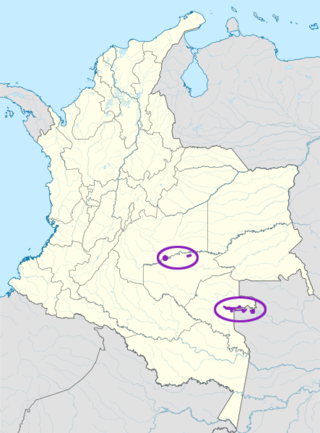Loading AI tools
Tucanoan language spoken in Brazil and Colombia From Wikipedia, the free encyclopedia
Tucano, also Tukano or Tucana, endonym ye’pâ-masa yee uúku͂sehé,[3] is a Tucanoan language spoken in Amazonas, Brazil and Colombia.
| Tucano | |
|---|---|
| ye’pâ-masa yee uúku͂sehé | |
| Native to | Brazil, Colombia |
| Ethnicity | Tucano people |
Native speakers | 4,600 in Brazil (2006)[1] 7,020 in Colombia (2012), including Pisamira[1] |
Tucanoan
| |
| Official status | |
Official language in | |
| Language codes | |
| ISO 639-3 | Either:tuo – Tucanoarj – Arapaso |
| Glottolog | tuca1252 Tucanoarap1275 Arapaso |
| ELP | Tukano |
| Arapaso[2] | |
 | |
Many Tariana people, speakers of the endangered Tariana language are switching to Tucano.
Nasal sounds [m n ŋ] are variants of voiced stops /b d ɡ/ between nasal vowels. Stops may also be heard as prenasalized [ᵐb ⁿd ᵑɡ] after nasal vowels. /w/ can be heard as a nasal bilabial semivowel [β̞̃] in the environment of nasal vowels. Allophones of /ɾ/ can be heard as [ɾ̃], [ɺ].[4][5]
Seamless Wikipedia browsing. On steroids.
Every time you click a link to Wikipedia, Wiktionary or Wikiquote in your browser's search results, it will show the modern Wikiwand interface.
Wikiwand extension is a five stars, simple, with minimum permission required to keep your browsing private, safe and transparent.